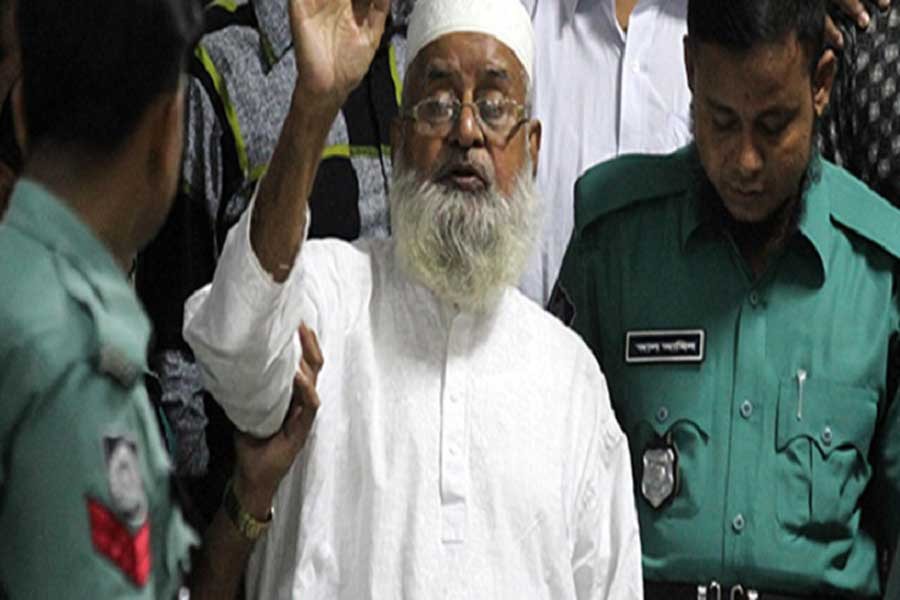The Supreme Court has scheduled the hearing of the appeal by senior Jamaat-e-Islami leader Abdus Subhan against the death sentence awarded by the war crimes tribunal.
On Wednesday, the three-member Appellate Division bench led by the chief justice fixed Oct 16 for the hearing.
The court also ordered the state and the defence to file the appeal's summary in two weeks.
In February 2015, the International Crimes Tribunal found Subhan guilty of six war crimes charges out of the nine levelled against him.
Subhan was the chief of the Jamaat’s Pabna unit and was a member of the party's highest policymaking body in the years after the Liberation War.
It came to light in the trial that Subhan, with Pakistani soldiers, had indulged in murders, mass killings, arson and lootings once ‘Operation Searchlight’ was launched on the night of Mar 25, 1971, reports bdnews24.com.
He is the ninth top Jamaat leader to be convicted of war crimes committed during Bangladesh’s struggle for freedom from Pakistan.
He contested in the 1970 election but lost to Awami League candidate Amjad Hossain.
Subhan was the general secretary and subsequently the vice-president of the 'Peace Committee' in Pabna during the 1971 war, formed to help the Pakistani forces in suppressing the freedom struggle of the Bengalis.
It was under his leadership that units of the Peace Committee, Razakars, Al Badr, Al Shams, and Mujahid were formed in Pabna district.
An investigation into Subhan’s war crimes by the prosecution’s investigating arm began in 2012.
The charge-sheet against the Jamaat leader was filed in September 2013.
He was arrested on Sep 20, 2012 and was later implicated in war crimes before being detained in jail, pending trial.
The trial started in December 2013 after nine charges of crime against humanity were brought against him.
The tribunal concluded the trial in December next year and delivered the verdict on Feb 18, 2015.
A former MP from Pabna town, Subhan was born on Feb 19, 1936, in the Tailakundi village at Sujanagar. His father was Sheikh Naimuddin, and mother, Nurani Begum.
In 1954, he passed the Kamil exams from the Aliya Madrasa in Sirajganj. He later became the head teacher of the same institution, and subsequently the superintendent of the Ulot Senior Madrasa in Arifpur.
He was appointed the chief of the Pabna district unit of the Jamaat once it was formed. From 1962 to 1965, he was a member of the Provincial Council.


